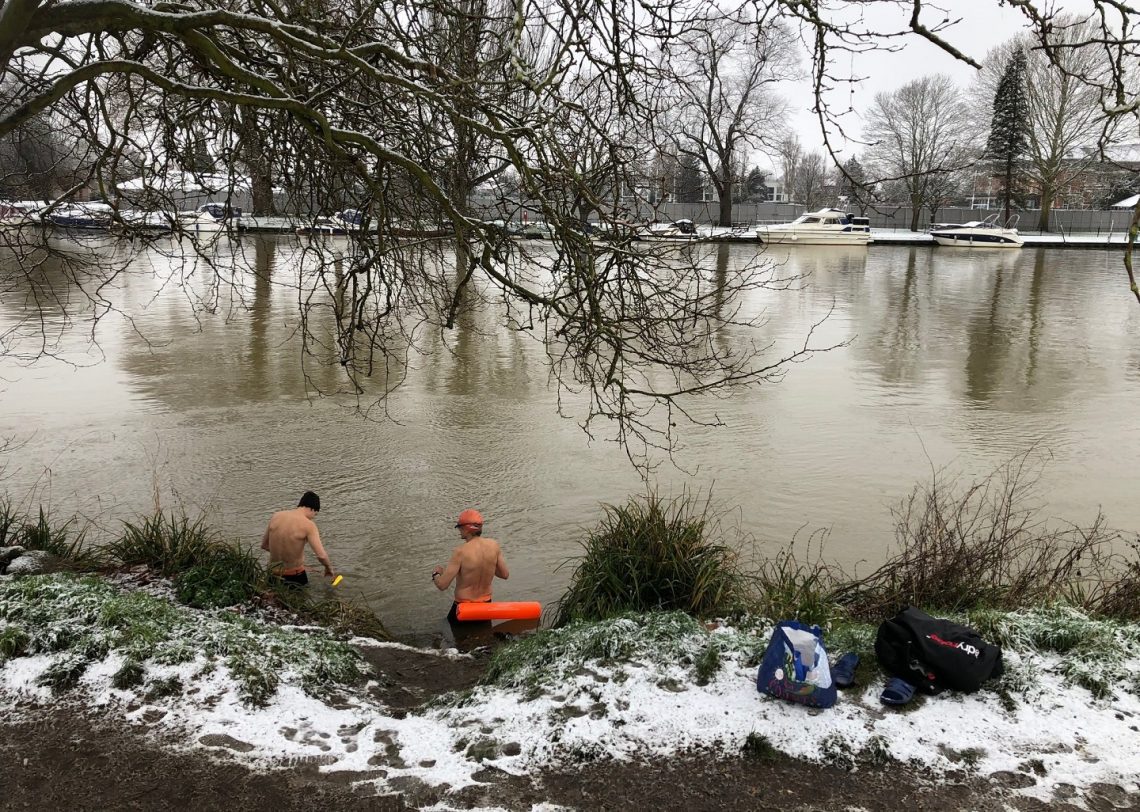
Is cold water harder to swim in because it’s ‘thicker’?
This great question from an Outdoor Swimmer subscriber got us scratching our heads
It is well known that the density of water increases as it cools, reaching its maximum density at 4 degrees Celsius. The density then decreases slightly at lower temperatures and ice is famously less dense than water.
However, the difference in density of fresh water at 30 degrees and 4 degrees is small: less than 0.5%, in fact (995.65kg/m3 at 30o and 999.97kg/m3 at 4o).
Besides, increasing the density of water usually makes it easier to swim, not harder, because you become more buoyant. Sea water is around 2.5% more dense than freshwater*, which is a big enough difference for swimmers to notice and appreciate.
It therefore seems unlikely that the small increase in water density at cooler temperatures is what makes cold water swimming harder.
But what about viscosity? This is another physical property of water that varies with temperature and is closer to the notion of ‘thicker’. Viscosity is a measure of the internal friction in a fluid – how sticky it is. Syrup, for example, is typically several thousand times more viscous than water. Surely swimming in a more viscous fluid would slow you down?
The change in water’s viscosity with temperature is much more marked than the change in density. Water is around twice as viscous at 1 degree than it is at 30 degrees (but nothing like as viscous as syrup).
Viscosity affects swimming in at least two ways. A high viscosity increases resistance to forward motion, but it also gives the swimmer more to pull against. Which of these wins out? I’m not even going to attempt the fiendishly complex mathematics that would be needed to calculate this – but luckily I don’t need to.
Two chemists, Brian Gettelfinger and E.L. Cussler, were also curious about this question and decided to run an experiment**.
The scientists added guar to pool water to increase the viscosity and asked student volunteers to swim in it. They timed them in both the treated pool and a standard control pool.
Their conclusion: viscosity makes no difference to swimming speed.
For their efforts, they were awarded the 2005 Ig Nobel Prize in Chemistry.
So if neither the increase in density nor viscosity makes swimming in cold water harder, what does?
Rather than physics, we need to turn to physiology. Your muscles simply don’t work as well when they are cold. Other possible causes are the additional overall stress on your body from swimming in cold water: your heart and breathing rates increase and blood flow to peripheral parts of your body is reduced to protect the core.
So while water is both denser and more viscous when it’s cold it is, in fact, the effects of cold water on your body that make it harder to swim in.
*Seawater salinity, and hence density, varies around the world.
**See also: https://cse.umn.edu/college/feature-stories/taking-plunge-science-wins-ig-nobel-award









